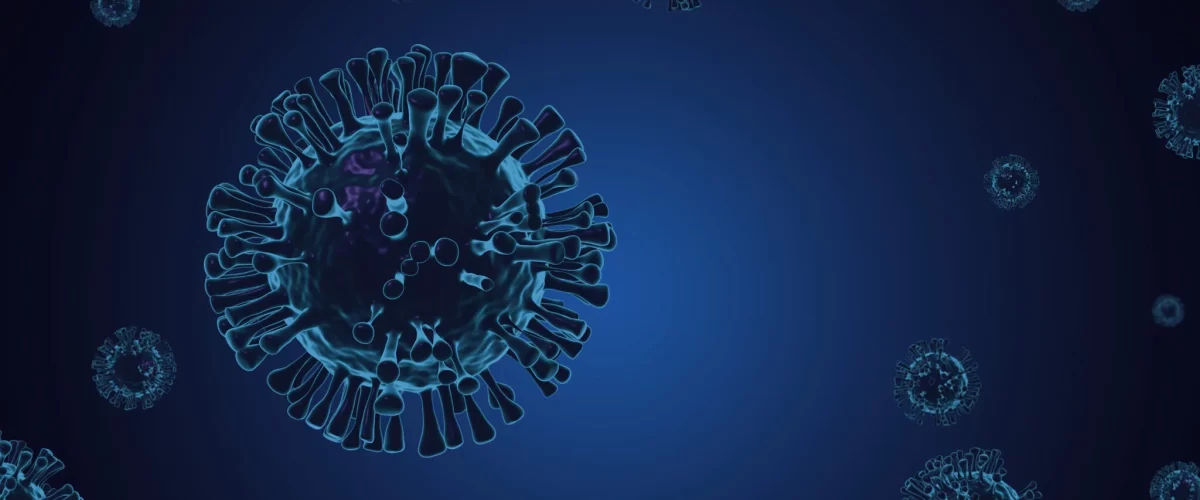
Seasonal Allergies and their Symptoms throughout the Year
Table of Contents
Seasonal Allergies
Hay fever is the more common name for allergies that occur in specific seasons. According to the American Academy of Allergy, Asthma, and Immunology, approximately 8% of Americans suffer from these conditions.
Pollen, such as hay or grass pollen, can trigger overreacting immune systems, leading to hay fever. Allergic reactions occur when the immune system reacts to an allergen. Trees, grasses, and weeds often have pollen released in the wind, which causes allergies. Unlike pollen from wind-pollinated plants, pollen from insect-pollinated plants is too heavy to remain in the air for long, making them less likely to trigger allergies.
The term “hay fever” refers to the hay-cutting season. The activity was historically associated with the summer when many people experienced symptoms.
It’s less common for seasonal allergies to occur during the winter, but allergic rhinitis can occur yearly. Each type of plant releases its pollen at a different time. It is possible to experience hay fever during different seasons, depending on your allergies and where you live. A reaction can also occur to indoor allergens, such as mold or pet dander.
Symptoms of seasonal allergies
Mild to severe seasonal allergies are common.
Here are some of the most common:
- Eyes that are watery and itchy
- Runny or stuffy nose.
- Sneezing
- Itchy sinuses, throat, or ear canals
- Postnasal drainage
- Ear congestion
Symptoms that are less common include:
- Shortness of breath
- Wheezing
- Headache
- Coughing
A large number of people with hay fever have asthma as well. In people with both asthma and hay fever, seasonal allergens can cause asthma attacks.
Causes of seasonal allergies
The ordinarily harmless airborne particles that cause hay fever are interpreted as dangerous by your immune system. A substance, or allergen, triggers the body to release histamines and other chemicals into the bloodstream. In response to those chemicals, allergic reactions occur.
Spring
The most common cause of springtime allergies is trees. Several people who suffer from hay fever react to the pollen of birch trees, which is common in northern latitudes. Among the other allergenic trees in North America are cedar, alder, horse chestnut, willow, and poplar.
Summer
Hay fever is an illness associated with the cutting of hay, which falls during the summer months. However, certain grasses, such as ryegrass and timothy grass, and certain weeds are the main culprits of summertime seasonal allergies.
According to the Asthma and Allergy Foundation of America, people with hay fever are most likely to be affected by grass.
Fall
Autumn is the time for ragweed to bloom. Ambrosia is the genus name for ragweed, and there are more than 40 species worldwide. Generally, they grow in temperate climates of North and South America. It’s challenging to control these invasive plants. Ragweed allergies can have particularly severe symptoms because their pollen is prevalent.
Plantains, nettles, mugworts, sorrels, and fat hens also drop pollen during the fall.
Winter
The majority of outdoor allergens lie dormant during winter. Many people with hay fever find relief due to the cold weather. As a result, people are spending more time indoors. You may react to indoor allergens such as mold, pet dander, dust mites, or cockroaches if you have seasonal allergies.
It is often easier to get rid of indoor allergens than outdoor pollens. Below are a few tips that will help get rid of common allergens in your home:
- Make sure your bedding is washed once a week in boiling water.
- Use allergen-proof covers for your bedding and pillows.
- Rugs and upholstered furniture should be removed.
- Do not let your children keep stuffed toys in their rooms.
- Ensure that water leaks are repaired and that any water damage is cleaned up. Mold and pests grow in humid environments.
- Make sure to clean moldy surfaces and places where mold may form, such as humidifiers, swamp coolers, air conditioners, and refrigerators.
- Reduce excess moisture by using a dehumidifier.
Some common triggers of hay fever vary from season to season.
Diagnosing seasonal allergies
The hay fever symptoms are usually easier to diagnose than those of other allergies. Seasonal allergic rhinitis describes seasonal allergy symptoms that appear only during certain times of the year. As part of your diagnosis, your doctor might also perform a physical examination of your ears, nose, and throat.
In most cases, allergy testing isn’t required. It doesn’t matter which allergen you react to when you have allergic rhinitis; you will likely receive the same treatment.
Treating seasonal allergies
Avoiding allergens that trigger your symptoms is the best way to treat hay fever and year-round allergic rhinitis. Medications may also treat hay fever symptoms. Other treatments may also be used.
Avoidance
You can avoid seasonal allergens by taking the necessary steps. When the weather gets hot in the summer, use an air conditioner with a HEPA filter rather than a ceiling fan. Stay indoors when pollen counts are high, and check your local weather network for pollen forecasts. In seasons when you are prone to hay fever:
- Do not leave your windows open
- Avoid spending too much time outside
- Dust masks are a good idea when you’re out, especially on windy days
Smoking can exacerbate hay fever symptoms, so it’s essential to avoid it.
Medication
Alternative treatments are available if you can’t avoid your allergens, such as:
- Cetirizine (Zyrtec) and combination medications containing acetaminophen, diphenhydramine, and phenylephrine are available over-the-counter for sinus congestion and allergies.
- A steroid nasal spray is an example of prescription medication.
Your doctor may prescribe allergy shots if your condition is severe.
Immunotherapy helps your immune system become desensitized to allergens.
Drowsiness, dizziness, and confusion are some of the side effects of allergy medication.
Alternative treatments
- There have been very few studies on alternative treatments for hay fever. The following are alternative treatments that may be helpful for some people:
- quercetin, a flavonoid that gives fruits and vegetables color
- Yogurt contains Lactobacillus acidophilus, a “friendly” bacteria
- Blue-green algae called spirulina
- A vitamin with antihistamine properties is vitamin C
The effectiveness of these alternative treatments needs to be investigated further.
The takeaway
Allergic reactions to seasonal pollen can be uncomfortable. Speak to your doctor if you think you may have seasonal allergies. You can ask them to help diagnose the cause of your symptoms and prescribe a treatment plan. Your doctor will likely encourage you to avoid your allergy triggers if you have allergies. Additionally, they may recommend over-the-counter or prescription medications.






